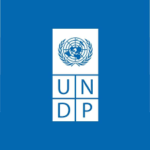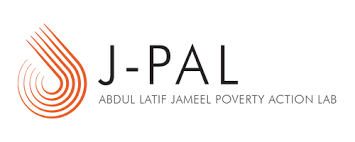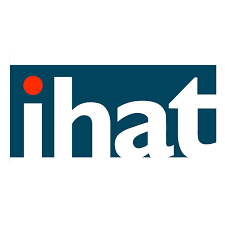
Website UNDP
Background
UNDP is committed to achieving workforce diversity in terms of gender, nationality and culture. Individuals from minority groups, indigenous groups and persons with disabilities are equally encouraged to apply. All applications will be treated with the strictest confidence.
UNDP does not tolerate sexual exploitation and abuse, any kind of harassment, including sexual harassment, and discrimination. All selected candidates will, therefore, undergo rigorous reference and background checks.
UNDP is the UN’s global development network, an organization advocating for change and connecting countries to knowledge, experience, and resources to help people build a better life. UNDP is on the ground in about 170 countries and territories, working with national counterparts on solutions to global and national development challenges.
In the programme countries, UNDP supports stabilization, state-building, governance and development priorities in in partnership with the host governments, the United Nations system, the development partners and other partners to help the country to achieve sustainable development by eradicating poverty in all its forms and dimensions, accelerating structural transformations for sustainable development and building resilience to crises and shock.
UNDP has worked in India since 1951 in almost all areas of human development, from systems and institutional strengthening to inclusive growth and sustainable livelihoods, as well as sustainable energy, environment and resilience. UNDP’s programmes continue to fully integrate a global vision for catalytic change with India’s national priorities. With over 30 projects on the ground in almost every state, today UNDP India works to achieve the Sustainable Development Goals by transforming traditional models to do development differently. In a rapidly changing global environment, the work of UNDP and the broader UN family aligns with the Government of India’s new national development vision, India 2030, and builds upon the Sustainable Development Goals. UNDP India’s country programme for 2018-2022 has three major focus areas:
- Inclusive growth
- Environment and energy
- Strengthening systems and institutions
These are supported by a framework of renewed partnerships and blended finance solutions, a pool of financial and technical resources for greater impact and scale, and South-South expertise.
You are invited to join a team of dedicated development professionals whose primary role is to support the India to achieve the 2030 Agenda. As part of the UNDP team your focus will be to work with multiple stakeholders to find the country specific solutions that lead to sustainable development and to ensure no one is left behind – and we reach those furthest behind first.
UNDP is looking for individuals who have the communication, analytical, planning and implementation capacities that can address links, choices and connections across many issues and sectors. We seek individuals who can apply global best practice to national contexts. We are looking for people who are enthusiastic, motivated, and committed to making a positive contribution to Development in India.
The Green Climate Fund (GCF) project – on “Enhancing Climate Resilience of India’s Coastal Communities”supports the Government of India and the state governments in the project states of Andhra Pradesh, Odisha and Maharashtra, to enhance the resilience of vulnerable coastal communities to climate change through ecosystem-based adaptation (EbA). The project combines GCF grant finance with significant leveraged co-finance from central and state governments to shift the paradigm towards a new approach, integrating ecosystem-centred and community-based approaches to adaptation into coastal management and planning by the public sector, the private sector and civil society.
The project supports the Ministry of Environment, Forest and Climate Change and the nodal departments of the target State governments, to enhance the resilience of the lives and livelihoods of the most vulnerable populations, particularly women, in the coastal areas of India to climate change and extreme events, using an ecosystem-centered and community-based approach in three target states. This project as well contributes towards the achievement of climate priorities outlined in India’s National Action Plan on Climate Change (2008), the State Action Plans, as well as commitments outlined in India’s Nationally Determined Contributions (2015).
The Climate Change, Resilience and Energy portfolio at UNDP is currently working in various thematic areas of climate change adaptation and mitigation; disaster management and resilience; and access to clean and efficient energy. The project works at national, state and community levels to enhance capacities for ecosystem-based approaches to climate change adaptation and enable climate policy and finance shifts to catalyse climate action in all of India’s coastal states and union territories.
The project will enhance the resilience of coastal communities throughout India, through the implementation of interventions under the following inter-linked outputs:
- Output 1: Enhanced resilience of coastal and marine ecosystems and their services;
- Output 2: Climate adaptive livelihoods for enhanced resilience of vulnerable coastal communities; and
- Output 3: Strengthened coastal and marine governance and institutional frameworks for climate resilient management of coastal areas.
The above will be achieved through interventions outlined below in target landscapes in the three states – Andhra Pradesh, Maharashtra and Odisha:
- Protect and restore ecosystems such as mangroves and seagrass
- Help communities adopt climate-adaptive livelihoods and value chains
- Mainstream EbA principles into coastal planning and governance, enabling intersectoral
- coordination for addressing climate risk across all of India’s coastal states.
- The target districts and landscapes in Odisha are as follows:
- Nellore :Pulicat Lake, Nelapatu Bird Sanctuary and surround communities
- Krishna :Krishna Wildlife Sanctuary, Bantumilli Wetlands
- East Godavari: Coringa Wildlife Sanctuary and surrounding communities
- Srikakulam : Telineelapuram, Sompeta
The candidate will work under the direct supervision of the State Project Manager (SPM) and the State Project Director, Andhra Pradesh Government. S/he will act as the focal point in the district for coordination and overseeing implementation of all activities under all three outputs of the project mentioned above at district and landscape level. This includes holistic stakeholder management, liaising with government counterparts, ensuring communication between district and state level officials, data collection for monitoring purposes and facilitating capacity building programmes for local communities.
Duties and Responsibilities
District Coordination Officer will report to the State Project Manager and State Project Director, Andhra Pradesh for Day-to-day supervision and administrative. The overall reporting to National Project Coordinator, UNDP.
Managing project at district level
- Assist State Project Manager (SPM) to develop district level management plans to be incorporated in the state level work plans for effective coordination at all levels.
- Support State Project Manager (SPM) to ensure the timely and effective implementation of the district level management plans.
- Develop rapport with relevant government officials at District, Block and Gram Panchayat level.
- Support the district administration in day-to-day coordination required for smooth implementation of various activities in the districts.
- Support State Project Manager (SPM) for preparation of Agenda and Background paper for the State Project Steering Committee meetings.
- Assist SPM in organizing respective project workshops and events ensuring participation from communities and government counterparts where necessary.
- Provide support to the SPM for preparation of state relevant reports.
- Data collection and capacity building.
- Collect primary/secondary data /information relevant to the project activities.
- Organize informal education and awareness campaigns across the district on climate change and its impacts, and the need to conserve and restore ecosystems, to support livelihoods and protect from extreme events.
- Support village-level capacity building efforts in target landscapes with respective NGOs.
- Periodically monitor progress and landscape level and report back on developments to the State office.
Stakeholder management
- Coordinate and work closely with all officials relevant to project activities at district, block and panchayat level.
- Establishing linkages with government agencies at GP, Block and District level to identify the additional needs for enhancing resilience of the vulnerable community including women.
- Work with NGOs and community to ensure good quality of work being done and use of participatory approach.
- Coordinate with the NGOs engaged in the District under project and ensure that activities are not duplicated.
- Ensuring participation of women, youth and marginalized groups fully in livelihoods activities and decision-making processes at Panchayat, Block and District level.
- Any other task/s assigned by State Project Manager.
Competencies
Core competencies:
- Achieve Results: LEVEL 1: Plans and monitors own work, pays attention to details, delivers quality work by deadline
- Think Innovatively: LEVEL 1: Open to creative ideas/known risks, is pragmatic problem solver, makes improvements
- Learn Continuously: LEVEL 1: Open minded and curious, shares knowledge, learns from mistakes, asks for feedback
- Adapt with Agility: LEVEL 1: Adapts to change, constructively handles ambiguity/uncertainty, is flexible
- Act with Determination: LEVEL 1: Shows drive and motivation, able to deliver calmly in face of adversity, confident
- Engage and Partner: LEVEL 1: Demonstrates compassion/understanding towards others, forms positive relationships
- Enable Diversity and Inclusion: LEVEL 1: Appreciate/respect differences, aware of unconscious bias, confront discrimination
Cross-Functional & Technical competencies:
Business Development
- Knowledge Facilitation: Ability to animate individuals and communities of contributors to participate and share, particularly externally
- Knowledge Generation: Ability to research and turn information into useful knowledge, relevant for context, or responsive to a stated need
Business Management
- Communication: Ability to communicate in a clear, concise and unambiguous manner both through written and verbal communication; to tailor messages and choose communication methods depending on the audience; Ability to manage communications internally and externally, through media, social media and other appropriate channels
Required Skills and Experience
Education:
Bachelor’s degree in social science, social work, rural management or related field.
Experience:
- At least 2 years of relevant experience (post bachelor’s) in general administration, programme support service, field work, management and coordination from the date of completion of essential qualification;
- Experience of working with state government, NGO/CBO will be highly desirable;
- Experience in the usage of computers and office software packages (MS Word, Excel, etc.);
- Ability to work with a team of professionals from diverse backgrounds and working with government and non-government agencies to manage national level project;
- Familiarity on functioning of state and national government agencies and non-government organizations;
- Good interpersonal and communication skills;
- Openness to change and ability to receive/integrate feedback;
- Ability to plan, organize, implement and report on work;
- Ability to work under pressure and tight deadlines;
- IT literacy, familiarity with e-presentation techniques and ability to operate with on-line web-based applications;
- Skills in facilitation and coordination, entrepreneurial spirit and demonstrated ability to work in an independent manner; commitment to teamwork and to working across disciplines;
- Demonstrates integrity and ethical standards;
- Positive, constructive attitude to work;
- Willingness to travel extensively;
- Builds and maintains constructive relationships with colleagues; treats people with respect; is cooperative, supportive and helpful with a positive contribution to the working environment
- Master’s degree in social science, social work, environmental management, rural management is desirable.
Language Requirement:
Excellent knowledge of written and spoken Telugu
Excellent knowledge of written and spoken English
Travel:
Must be willing to travel
Remuneration:
Remuneration starting at INR 7,16,730/- (Annual)/INR 59,727/- (Monthly) as per salary scale depending on qualifications and experience. The remuneration is excluding 8.33% pension amount paid over and above the salary.
To apply for this job please visit estm.fa.em2.oraclecloud.com.





